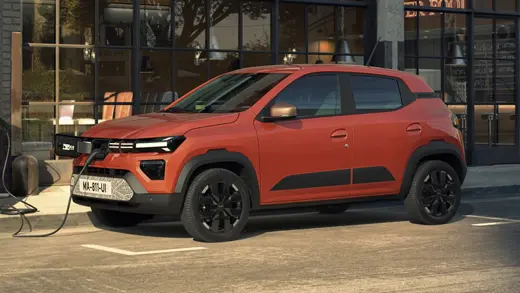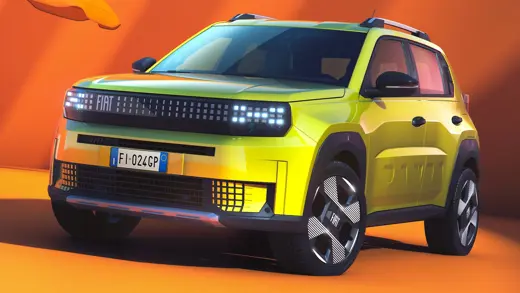BMW Confirms Plans to Launch First Mass Production Hydrogen Fuel Cell Electric Car by 2028
BMW, one of the world’s leading automotive manufacturers, has officially confirmed plans to launch its first mass production hydrogen fuel cell electric vehicle (FCEV) by 2028. This announcement marks a significant step in the company's long term strategy for sustainable mobility and highlights BMW’s commitment to expanding its portfolio beyond traditional electric vehicles.
Hydrogen fuel cell technology is gaining traction as a promising alternative to battery electric vehicles (BEVs). Unlike BEVs, which rely on large batteries to store energy, hydrogen FCEVs generate electricity through a chemical reaction between hydrogen and oxygen in the fuel cell, emitting water vapour as a byproduct. This makes hydrogen powered cars not only emission free but also efficient for long travel and fast refuelling. BMW sees hydrogen as a complementary solution to battery electric power, especially in markets where fast refuelling, long range driving, and larger vehicles such as SUVs are in demand. With its upcoming hydrogen FCEV, BMW aims to provide a green alternative for customers who seek performance, convenience, and sustainability.
BMW’s decision to push forward with hydrogen technology is part of its larger strategy to achieve carbon neutrality by 2050. In recent years, the company has intensified its research and development efforts in hydrogen fuel cell technology, working closely with Toyota, a global leader in hydrogen innovation. This partnership has been critical in bringing BMW closer to producing hydrogen powered vehicles at scale. Oliver Zipse, Chairman of the Board of Management at BMW AG, has been vocal about the company’s belief that hydrogen is a key pillar in the future of mobility. "Hydrogen will play a central role in achieving the global decarbonisation goals," Zipse said in a recent statement. He added that while battery electric vehicles will remain important, hydrogen fuel cells offer distinct advantages, especially for larger vehicles and longer travel distances.
BMW’s first step into hydrogen came in the form of the iX5 Hydrogen, a prototype based on the X5 SUV. First revealed in 2021 and produced in limited quantities in 2023 for demonstration and testing purposes, the iX5 Hydrogen was well received. It demonstrated how hydrogen fuel cells could power a luxury vehicle with the same performance and comfort that BMW is known for, but with zero emissions. Building on the success of the iX5 Hydrogen, BMW has now confirmed that it will introduce a mass production hydrogen FCEV by 2028. While details about the model are still limited, it is expected to be based on a large SUV platform, reflecting the demand for hydrogen in this vehicle segment where long range and rapid refuelling are especially valuable. The upcoming hydrogen model will feature a state of the art fuel cell stack developed in collaboration with Toyota. Hydrogen will be stored in high pressure tanks, and the electricity generated by the fuel cell will power an electric motor, delivering a smooth and emission free driving experience. Refuelling time is expected to be just 3-5 minutes, much faster than charging a conventional battery electric vehicle, making it ideal for drivers who need to cover long distances without frequent or extended stops.
BMW’s embrace of hydrogen technology is part of its multi powertrain approach, which includes battery electric, plug-in hybrid, and internal combustion engine (ICE) options. Rather than betting solely on battery electric vehicles, BMW believes that different technologies will serve different markets and customer needs. Hydrogen fuel cell vehicles are seen as an essential part of this mix, offering unique advantages in terms of range, refuelling speed, and suitability for larger, heavier vehicles. By 2030, BMW expects hydrogen fuel cells to play a more prominent role in its lineup, especially as global efforts to reduce carbon emissions intensify and hydrogen infrastructure continues to expand. The company is positioning itself to be a leader in hydrogen mobility, aligning with initiatives in Europe, Asia, and North America to promote green hydrogen production and build hydrogen refuelling stations.
Despite the potential of hydrogen fuel cell technology, there are still challenges that need to be addressed before it can achieve widespread adoption. One of the main hurdles is the lack of a robust hydrogen refuelling infrastructure, which remains underdeveloped compared to the rapidly expanding network of charging stations for electric vehicles. Governments and private companies will need to invest heavily in building out this infrastructure to make hydrogen a viable option for mainstream consumers. Another challenge is the cost of producing green hydrogen, which is hydrogen generated from renewable energy sources like wind and solar power. Currently, the production of green hydrogen is expensive, but advancements in technology and scaling up production are expected to drive down costs over the next decade. BMW is optimistic that by the time its hydrogen powered vehicles are on the road in 2028, the hydrogen supply chain will have matured enough to support widespread adoption.
BMW’s confirmation of plans to mass produce a hydrogen fuel cell vehicle by 2028 signals the company’s confidence in hydrogen as a key technology for the future of mobility. By offering a hydrogen powered option alongside its battery electric models, BMW aims to provide its customers with more flexibility in choosing how they want to drive sustainably. As the world moves towards reducing carbon emissions and increasing energy efficiency, BMW’s commitment to hydrogen technology positions the brand at the forefront of innovation. The company’s multi powertrain strategy ensures that it will remain competitive in an evolving market, while also playing a significant role in advancing green mobility solutions. The launch of BMW’s first mass produced hydrogen FCEV in 2028 will be a milestone not only for the brand but also for the entire automotive industry. It could help pave the way for hydrogen to become a mainstream alternative to battery electric power, offering consumers more choices and contributing to the global effort to combat climate change.



